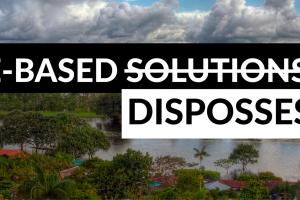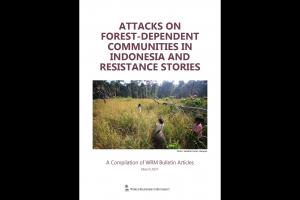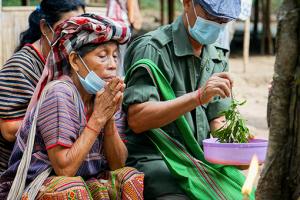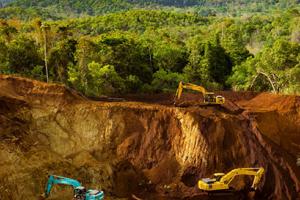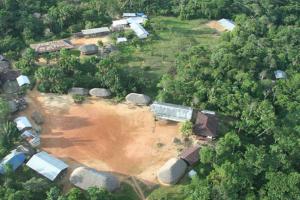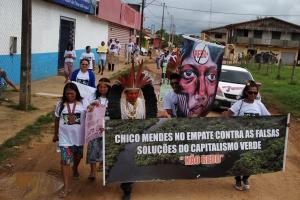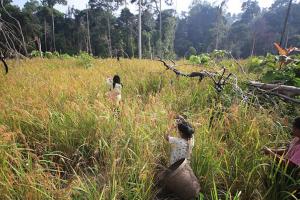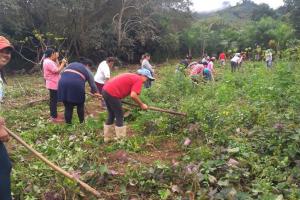Conservationist NGOs
The conservation model that conservationist NGOs like WWF, Conservation International and The Nature Conservancy promote excludes communities that have been living on the land often long before it was declared to be a “protected area.” This parks-without-people approach has led to increasingly militarized conservation areas and greater violence against communities in and around forests that have been declared as protected areas. Conservationist NGOs have entered into partnerships with corporations—including the world's largest oil and mining corporations—thereby transforming into an industry that propitiously greenwashes the image of these corporations.
It is imperative to understand the concept of ‘nature-based solutions,’ to name it for what it is: ‘nature-based dispossessions’, and to expose the real threat it poses to territories.
While the concept of ‘Nature Based Solutions’ has eagerly been seized upon by polluting industries, financial institutions and governments, its origins lie somewhere else.
The term ‘nature-based solutions,’ in the context of the exclusionary and predatory projects that gather behind it, reveals something fundamental.
WRM Bulletin Compilation. Available in English and Indonesian.
Indigenous Karen People from Bang Kloi returned to their ancestral home in the Kaeng Krachan forests, after years of dispossession due to the creation of a National Park. Karen communities are mobilizing in solidarity to the Bang Kloi communities’ right to return home.
How does REDD+ fit into the development agenda in Indonesia? What are the actors involved in promoting REDD+ and with which interests? (Available in Indonesian).
Most governments, NGOs and corporations are promoting more Protected Areas and conservation areas around the world. But what does conservation mean? Marlon Santi of the Kichwa people of Sarayaku explains to us what the Amazonian peoples of Ecuador consider to be conservation.
The tens of millions of euros that the government of Acre received from the German government for its REDD+ program failed to stop deforestation. Despite this fact several Brazilian states continue to receive funds from the German government.
The approval of a road construction inside the first Ecosystem Restoration Concession in Indonesia puts in evidence the inherent contradictions of such concessions. (Available in Indonesian)
With the Covid-19 crisis, the initiatives of movements and collectives based on feminist economics have gained strength. Feminist economics leads us to reflect on the updated mechanisms of control, while continuing to affirm the capacity for resistance and reconstruction of bodies in movement.
